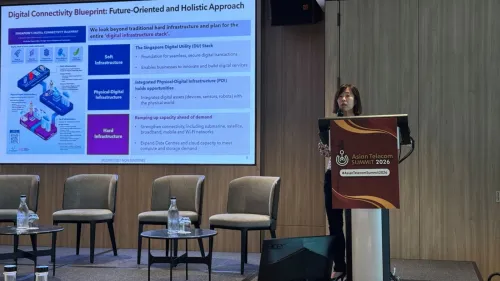Urban farming rises as key to Indonesia's enhanced food security
Urban farming rises as key to Indonesia's enhanced food security
With Indonesia facing rapid urban expansion and the adverse impacts of global warming, urban agriculture emerges as a viable solution to several pressing issues such as enhanced food security.
Neralla Rama Ravi Teja, Consumer Analyst at GlobalData, said that authorities now encourage urban and peri-urban residents to engage in farming to enhance self-sufficiency in food production.
"Urban areas have been increasing at a brisk pace, encroaching on rural lands traditionally used for agriculture," Teja explained. This trend, coupled with a 0.9% population growth in 2023, has heightened the need for efficient land use in both urban and rural settings.
Indonesia's urban population is projected to surge from 57.9% in 2022 to 62.8% by 2023, putting additional pressure on food resources.
However, food security is not the only challenge facing Indonesia. The nation also grapples with high inflation rates, driven by several factors, including global warming and geopolitical tensions.
Teja pointed out that rice, Indonesia's staple food, is particularly vulnerable to water scarcity exacerbated by higher temperatures and the El Niño phenomenon. These conditions disrupt food supply chains and contribute to soaring food prices.
Another significant pressure point is Indonesia's dependence on fertiliser imports, particularly from Russia and Belarus. The ongoing conflict in Eastern Europe has led to increased fuel prices worldwide, impacting the cost of fertiliser production.
"Natural gas and petroleum are key components of fertiliser manufacturing. With oil prices on the rise, fertiliser prices have escalated, pushing food prices even higher," Teja noted.
He said that a significant portion of urban farming involves consumers cultivating fruits and vegetables in their own backyards. This practice addresses growing concerns over the use of artificial ingredients and genetically modified organisms (GMOs) in food production.
"Around 70% of Indonesian consumers consider natural ingredients essential, and 56% prioritise organic products," Teja highlighted. By growing their own food, consumers can ensure their produce is free from artificial additives and GMOs, thereby gaining greater control over food quality.
Urban farming not only offers a solution to food security and quality concerns but also empowers Indonesian consumers to contribute positively to the environment. By utilising organic fertilisers and sustainable farming practices, they can help mitigate the effects of climate change while ensuring a steady supply of fresh produce.










